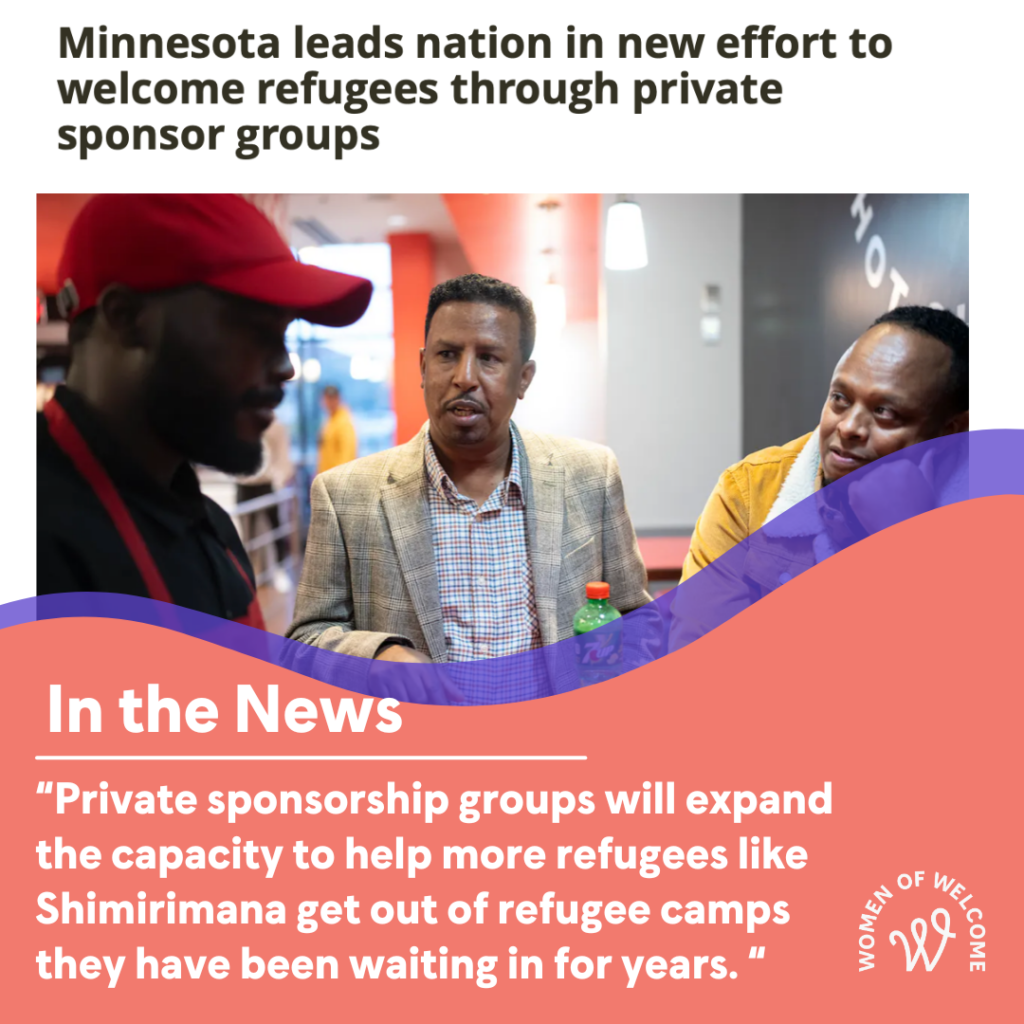The Need for Private Sponsorship is Urgent
Issues at the southern border and difficulties with the asylum program have dominated immigration news in the past few years. The urgency of refugee resettlement can be sidelined because it is not as visible. A recent interview by Maya Rao in the Star Tribune with a newly resettled refugee is helping to highlight the urgency—and also shed light on what we can do.
Shimirimana told the Star Tribune that he hopes for the Welcome Corps “to get bigger, to bring more people because there are thousands and thousands of people in refugee camps in Africa who need help.”
Anyone Can Do It
Starting a Welcome Corps group to help a refugee get settled in the U.S. can sound like an overwhelming task. Robsan Yusuf’s inspiring story reminds us anyone can do it and that these groups can make a big difference in our communities. Yusuf arrived in Minnesota as a refugee himself in 2005. He is from Ethiopia and is now the owner of a home healthcare company. When he learned about the Welcome Corps, he gathered five friends to form a group with him. They went through the application process and raised the $2,275 required to support a newcomer in the U.S. for the first three months.
“It is giving back to the community, since I am myself a former refugee,” Yusuf said when he was asked why he wanted to be a part of the Welcome Corps. Another group member was a refugee in Kenya after fleeing Ethiopia. He said he doesn’t want people to experience the hardships he experienced when he first arrived in the U.S. and wants to help.
Shimirimana was in Zimbabwe when he received a message asking if he would like to be received by private sponsors. He had been waiting for this news for years. His parents fled from the violence of their home in Burundi in the 1970s, ending up in another conflict in what is now the Democratic Republic of Congo. In 2008 he fled to Zimbabwe and was vetted and approved to come to the U.S. as a refugee in 2018. Resettlement reductions under the previous administration and then the pandemic halted his departure. When he was connected to the Welcome Corps group in Minnesota, all that changed.
As Shimirimana still finds his way in the U.S., navigating the often rocky first few months, he dreams of one day working as a truck driver. He says, “Once I settle down, I wish to do this for others.”
You Can Do It, Too!
In groups of five or more, sponsor groups welcome refugee newcomers in their first few months after arrival, and build bonds that could extend a lifetime. Your help to secure and prepare initial housing, greet refugee newcomers at the airport, enroll children in school, or help adults to find employment will be invaluable as these families rebuild their lives here.
Sponsoring together with friends, coworkers, congregation members—anyone in your community—makes the work easier and can be deeply rewarding for everyone involved.
You already have the most important skill you need to succeed—knowledge about daily life in your community. As a sponsor, you will not take on this opportunity alone. Experts like Women of Welcome and We Welcome will be there to guide you each step of the way. Get more information by watching our On-demand Webinar. You can also fill out this interest form to get in touch with someone for more information!

 This resource answers the most common questions Christians have about immigration and equips you to engage conversations with biblical clarity, truth, and grace.
This resource answers the most common questions Christians have about immigration and equips you to engage conversations with biblical clarity, truth, and grace.